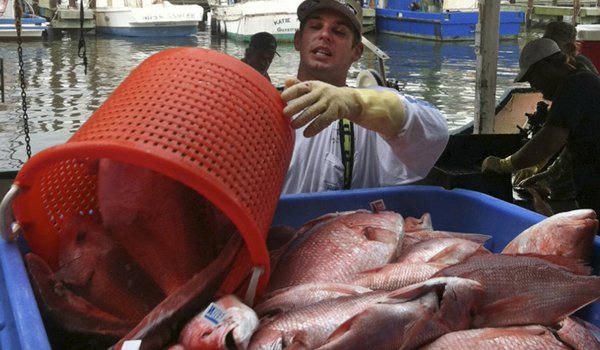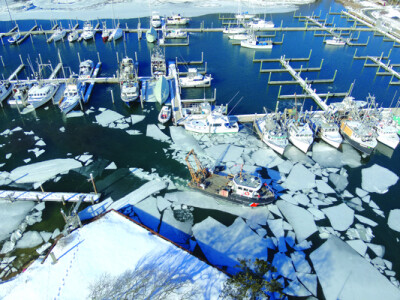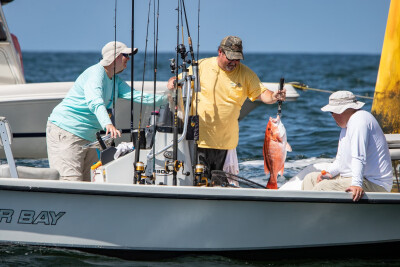If you're doing everything right, isn't it a good idea to be able to show that to people? Justine Simon runs Salt & Sea, a community supported fishery in Portland, Maine. Her husband is a fourth generation fisherman. Her goal is to connect Maine consumers to the best quality local fish. The fishermen she works with — who catch their fish using best practices — want that connection, too.
"The fishermen we work with take tremendous pride in what they're doing. They'll have heated conversations about which way to lay fish in the hold," she says.
Quality is priority, and they don't like it when their fish is not given the recognition it deserves.
"For these guys, it kills them when their boat's being unloaded and it's kicked off the boat or mixed in with other fish" for which maybe the same care wasn't taken. "For them it means a lot when we give them the customer feedback — people are raving about their fish."
The conversation reminded me of a discussion I had with Eric Brazer of the Gulf of Mexico Reef Fish Shareholders Alliance. I interviewed him for a story I'm writing for the June issue of National Fisherman about efforts to use cameras for catch monitoring instead of or in addition to human observers.
It's a cost issue, but it's also one of recognition. The fishermen Brazer works with would like electronic monitoring to help tell the story of the quality and sustainability of their fish. That story includes the success of the recently rebuilt red snapper fishery.
Extra accountability from cameras on fishing boats could help reinforce the Gulf Wild program, which tags a fish so the consumer can see the boat it came from and/or dock it was landed at. He says it was developed partly to disprove myths and rumors about gulf fish that followed the oil spill.
"It's more than just traceability, it's getting the most accurate information into the hands of anyone who touches the fish," he says.
It shows the importance of marketing. It's not just about adding value through best practices, but getting the word out about those practices. There are challenges to doing this, but consider this: Are you doing enough to ensure your fish and your hard work are getting the recognition they deserve?
As we've seen with the recent report from Oceana about the United States' "dirtiest fisheries," sometimes others will gladly tell the story for you, but it won't be a good one.
Photo by Bill Cochrane/Gulf Seafood News







